The gaming landscape is undergoing an exciting transformation. Once criticized for its lack of diversity, video games are now featuring Black characters as dynamic heroes. This change is not just significant for the gaming industry; it carries vast implications for Hip-Hop culture and the young video gamers who look to these characters for inspiration.
My Personal Reflection as a Young Gamer
My earliest video game memories come from lines on a screen. Then the lines turned into Pac-Man eating glowing power balls on a screen and evolved to characters from people’s creative minds that represented heroes of differing worlds and stories. But there was always something missing: me. To see a person from my culture in a video game was a rarity. I mostly saw black people in sports games, and in funny characterizations that looked nothing like me. Now in my 40s, I find it gratifying to see that today’s children are growing up in an era where people like us are represented and accessible in the world of video games.
The Shift in Representation
Historically, video games have often missed the mark on representation. Many characters were one-dimensional, neglecting many cultures and backgrounds. Yet, the calls for diverse narratives have led to noteworthy changes. Characters like Miles Morales in Spider-Man, Miles Morales and the heroes in Tales of Kenzera, Zau, and South of Mississippi have opened the lens and minds of people to see, accept,
and spend money on characters that look like they are a part of the greater diverse society all gamers share.
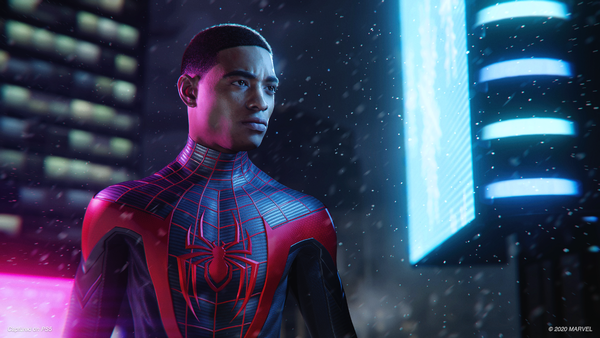
This rise in representation means that children from different backgrounds can finally see themselves as leading characters, embarking on epic journeys. For instance, a survey from the International Game Developers Association found that 83% of players value diversity in video games, proving that diverse representation is not just desired but essential.
Impact on Hip-Hop Culture
Hip-hop culture has long influenced the lives of millions, and the integration of Black heroes in gaming enhances this relationship. Well-known artists, from Nas to Wu-Tang Clan often reference gaming in their lyrics, reflecting the crossover between these two cultures.
For example, in a track by Travis Scott, he mentions exploring virtual worlds, drawing parallels between gaming adventures and life challenges. This unique fusion resonates strongly with young players, reminding them that creativity and authenticity are key elements of both gaming and Hip-Hop.
As a younger gamer, the first game I remember that had rappers and Hip-Hop artists in it was Rap Jam Volume 1 for the Super Nintendo Entertainment System (SNES). We only received pictures of rappers on substandard graphics in a basketball game but nothing that stood out. There are many games and many memories to share, but when Def Jam Vendetta and Def Jam: Fight for NY came out, Hip-Hop went to another level in representation on video games. I was able to not only hear the songs I loved to listen to, but also play as the artists.
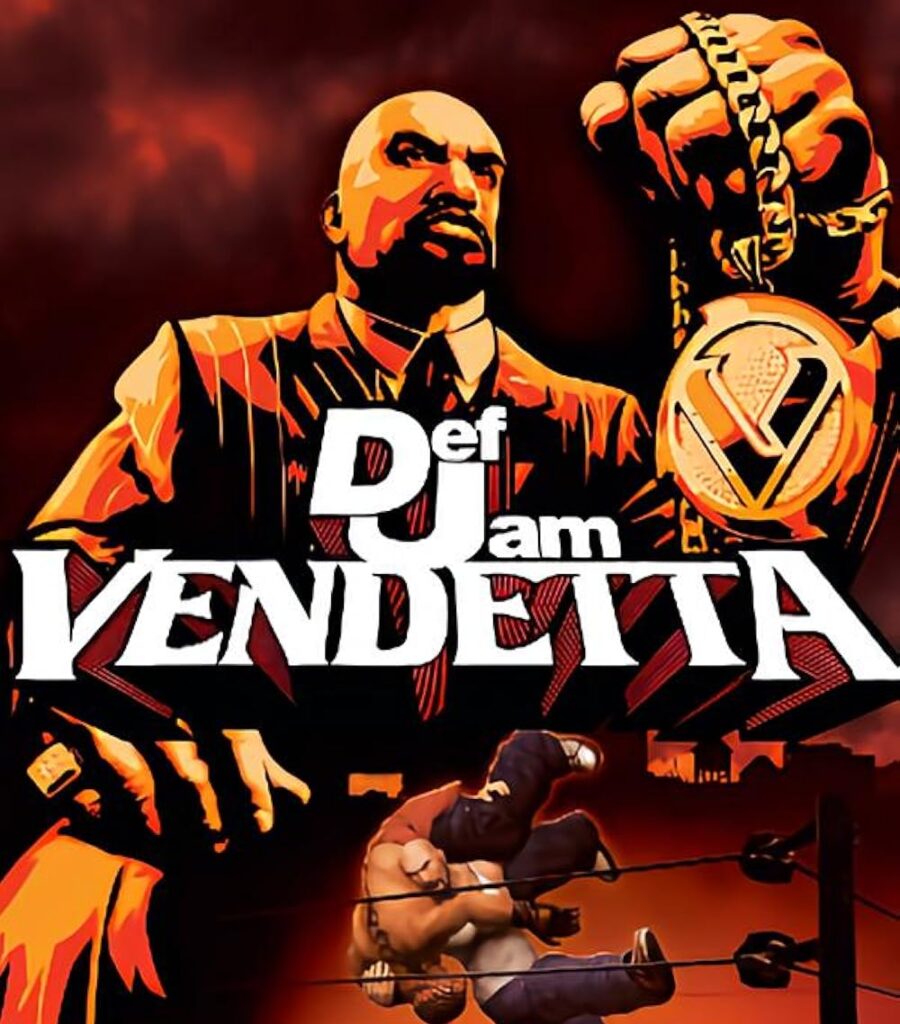
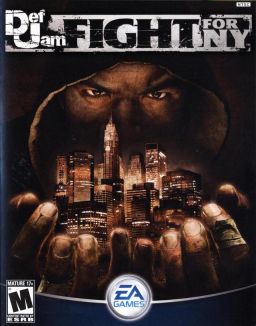
The game Marc Ecko’s Getting Up: Contents Under Pressure was the first game I played with a full story that gave me a character who represented Hip-Hop. In addition to featuring the voice of Talib Kweli, the game uses graffiti and street art as tools for resistance, conveying powerful messages, and challenging the establishment. While hip-hop music has long been a staple in sports video games, authentic representation was rare. Our presence was often reduced to background soundtracks or superficial
character skins, rather than being at the center of original, narrative-driven stories.
Empowering Young Gamers
Young gamers gain more than mere entertainment when interacting with dynamic, well-developed characters. They encounter narratives that celebrate victory against odds and stories of perseverance. When children see relatable heroes overcoming challenges, it inspires confidence and encourages them to embrace their identities. In comic books, Miles Morales, in the Spider-Man stories, has become a popular character who has gone from comic book pages to video gaming. Despite Black Panther
becoming a blockbuster success, Marvel and Disney missed a major opportunity by under-marketing the character’s growing fan base and failing to capitalize on the surge of interest sparked by the film. Now we see children able to choose The King of Wakanda in games like Marvel: The Avengers, Marvel Rivals, and Black Panther, which have two upcoming games to be released on the current generation of video game consoles. Consider games like NBA 2K, Rise of The Ronin, and WWE2K25, where players can create avatars representing their backgrounds. This feature promotes self-expression, showing boys and girls they can be heroes in their journeys. In fact, studies indicate that children who identify with game characters show increased self-esteem and are more likely to engage in positive social interactions.
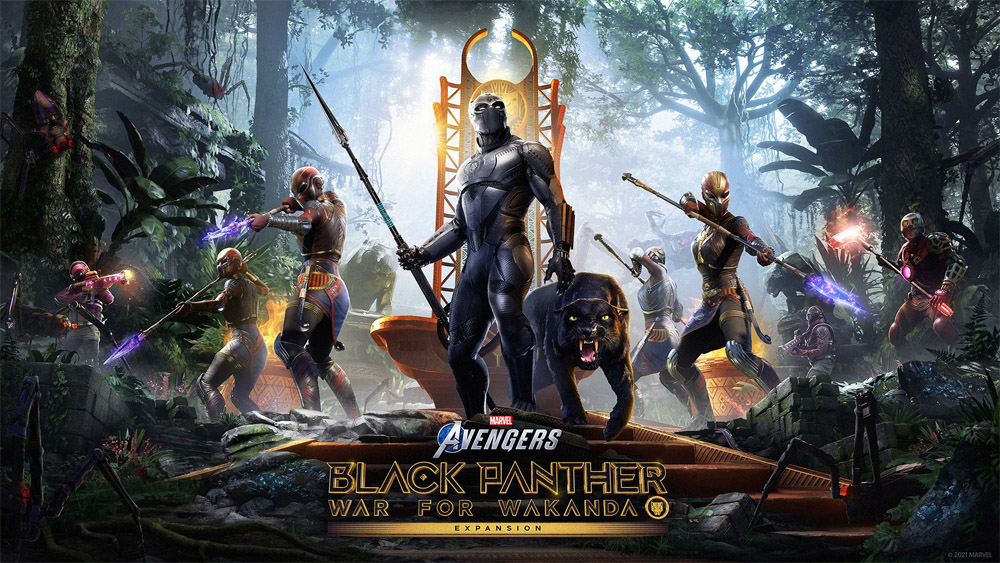
The Role of Communities
Gaming thrives on community engagement. Conversations about representation gain traction in online forums, gaming conventions, and social media, emphasizing the importance of diverse narratives. Developers are now more receptive to feedback from players regarding the types of characters they wish to see. Companies like Naughty Dog actively involve their community in discussions about LGBTQ+ and racial representation, showing a commitment to authenticity. This ongoing dialogue empowers Black characters to have more significant roles in gaming, ensuring that new releases resonate deeply with a
broader audience.
Bridging Real-Life Challenges
Games have a unique ability to highlight real-world issues through their stories. Titles featuring Black characters often address themes such as systemic challenges, personal identity, and cultural pride. For instance, Assassin’s Creed: Freedom Cry tackles slavery and freedom, providing players with a chance to engage in heavy yet vital topics. Today’s world is dealing with a new type of censorship with DEI and the deletion of real American history, with books being taken out of libraries and the social consciousness of our society. Video games now have the power to tell meaningful stories and incorporate history, not just to entertain, but to ensure authentic representation. Through world-building and narrative depth, gaming can preserve diverse perspectives while helping players explore real-life emotions and gain a deeper understanding of the world around them.
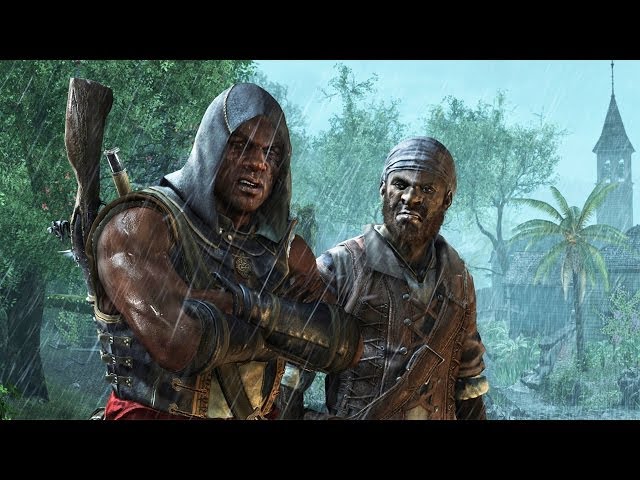
The Role of Game Development The emergence of Black heroes didn’t happen by accident. Game developers have become increasingly aware and socially conscious. They understand the significance of representing diverse narratives in a changing demographic landscape. Successful collaborations between developers and influential figures in hip-hop have empowered projects that elevate Black voices. For example, the partnership between 2K Sports and hip-hop artists helps create immersive soundtracks that resonate with fans, enriching the gaming atmosphere and creating a more authentic gaming experience.
The Implication for Future Generations
As gaming continues to grow, the importance of representation will extend into the future. Children who see Black heroes today are motivated to pursue their dreams beyond the screen, in art, music, storytelling, and other fields. These heroes ignite the imaginations of youth, pushing them to craft their own narratives and chase their passions. They serve as real-world role models, demonstrating that breaking barriers is possible, not just in gaming but all aspects of life.
In Summary
The rise of Black characters as heroes in video games signals a shift in representation and storytelling. This evolution enriches gaming culture and positively influences hip-hop and young audiences. We can look forward to a future filled with diverse stories, empowered individuals, and collaborative creativity. Championing representation matters; it shapes the narratives that define our culture. By inspiring the next generation with diverse voices, we contribute to a future where every child can envision themselves as heroes in their stories, both in gaming and beyond.